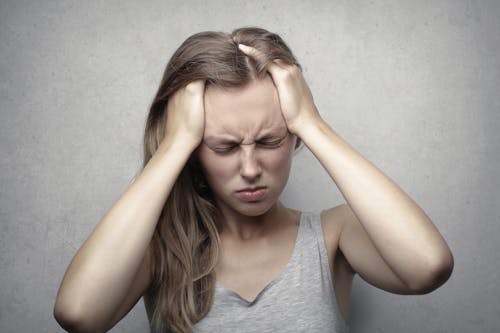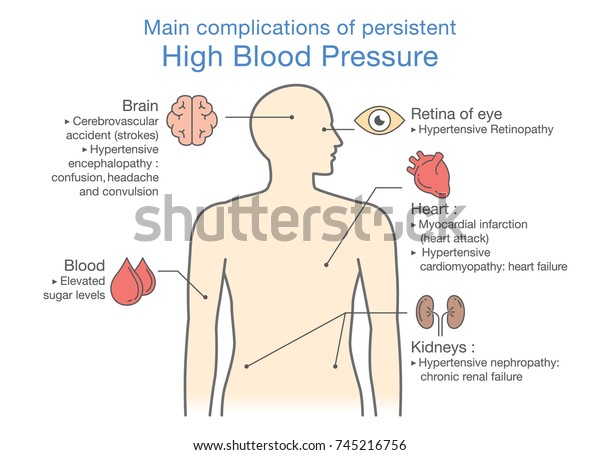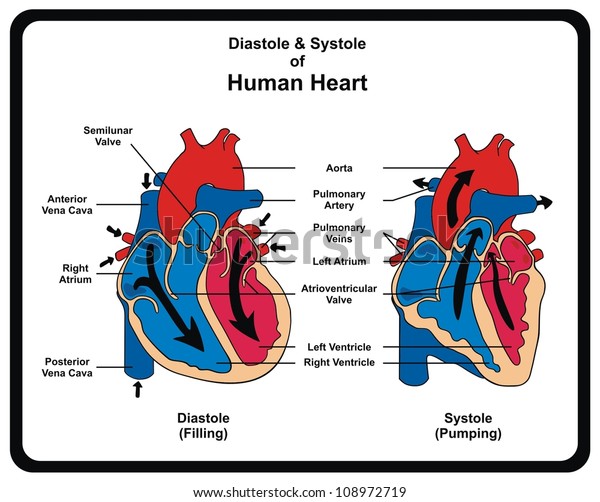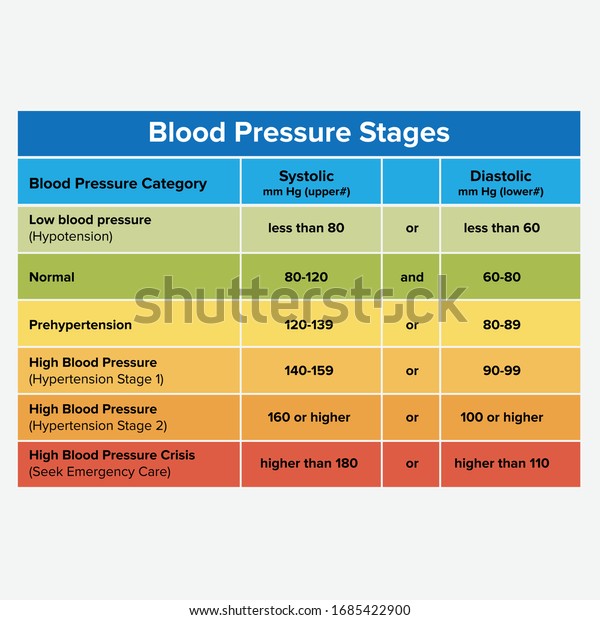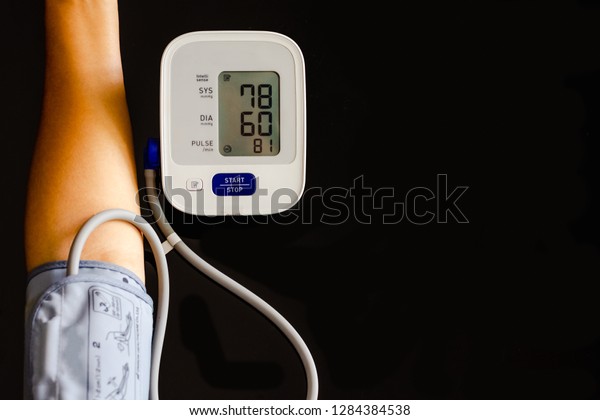Hypertension, commonly known as “high blood pressure” is a medical condition in which the blood pressure is raised to the level where it can’t flush through the body organs and tissues.
Hypertension is the most commonly occurring disease in the Cardiovascular system. Hypertension can be treated by low salt intake, lowering cholesterol level, healthy lifestyle, and the use of medications.
What are risk factors associated with persistent hypertension?
Although many hypertensive patients are asymptomatic, however, chronic hypertension can lead to complicated cardiac issues including heart failure and cardiac stroke, which are the most common causes of death worldwide.
There are increased risks of chronic kidney disease kidney and brain damage as a result of persistently elevated blood pressure.
These complications and deaths associated with hypertension can be prevented if it is diagnosed in the early stages and treated properly.
What are the stages of hypertension?
Classification of hypertension on the basis of blood pressure.
| Category | Systolic B.P (mmHg) | Diastolic B.P (mmHg) |
|---|---|---|
| Normal | <120 | <80 |
| Prehypertension | 120-139 | 80-89 |
| Hypertension | ≥ 140 | ≥90 |
| Hypertension stage 1 | 140-159 | 90-99 |
| Hypertension stage 2 | ≥160 | ≥100 |
What is the main cause of hypertension?
The causes of high blood pressure depend upon the type of Hypertension. Sometimes a Doctor is not able to find the exact cause of high blood pressure and attributes it towards genetic reasons or some other conditions.
However, some common causes are:
- Hepatic disease i.e. Cirrhosis
- High salt intake
- Pulmonary fibrosis or bronchitis
- High cholesterol diet
- ■■■
- Cardiac defect by birth
- High blood sugar
- Excessive alcohol intake
Summary
Hypertension, also known as high blood pressure is a disease in which blood pressure is increased above the threshold and can lead to cardiac diseases. The main causes of hypertension are high salt intake, pulmonary diseases, high cholesterol levels, etc.
What are the types of hypertension?
Depending upon the etiology, there are following types of hypertension along with their signs and symptoms:
1. Primary OR Essential Hypertension
In 90% of individuals, the actual cause of this Hypertension is not known. It is diagnosed by continuously high blood pressure after three or four hospital visits. There are no specific symptoms associated with this type of hypertension.
Some patients represent the following signs:
- Frequently occurring headaches,
- Feeling of tiredness
- Dizziness
- Sometimes, blood from the nose
2. Secondary Hypertension
There is some specific cause behind this type of hypertension, for example, any defect in arteries supplying blood to organs.
There may be the following causes of secondary hypertension:
- Adrenal problem (i.e. tumor)
- Abnormality in thyroid glands
- Imbalancing of hormone
- High salt intake
- Alcohol consumption
3. Malignant Hypertension
In this type of hypertension, there is an abrupt and extreme rise in a patient’s blood pressure (about 180/120). It is the same as a hypertensive emergency and should be considered and managed like an emergency.
4. Resistant Hypertension
Resistant Hypertension is the type of hypertension in which blood pressure remains elevated no matter what therapy is given. It is mostly present in individuals, suffering from some other ailments, such as obesity, diabetes, renal problems, or in people with poor compliance with therapy.
What is Pulmonary Hypertension?
It is a serious kind of hypertension in which pulmonary arteries are either blocked or narrowed. As a result of blockage or narrowing of arteries, blood flow becomes difficult, forcing the heart to pump blood with excessive force.
This pressure on the heart depicts itself as hypertension. Due to excessive work pressure on the heart, cardiac muscles start to be weakened which may cause heart failure.
However, it can be treated effectively with medicines, after it gets diagnosed.
Summary
Various types of hypertension include essential hypertension, secondary hypertension, malignant hypertension, resistant hypertension, and another important type is pulmonary hypertension.
What is a hypertensive crisis or hypertensive emergency?
Same as malignant hypertension discussed earlier, hypertensive crises result from severely high blood pressure (180/120) that may lead to stroke, damage of blood vessels, or ■■■■■ failure. It can result from chronic hypertension.
The following factors can cause a hypertensive crisis:
- Missing the doses of blood pressure medicine
- Ruptured aorta
- Heart failure
- Eclampsia
Hypertensive crisis can further be divided into two categories:
1. Urgent hypertensive crisis
2. Emergency hypertensive crisis
In urgent hypertensive crisis, there is an extreme rise in B.P, however, no evidence of ■■■■■ damage.
While, in an emergency hypertensive crisis, there is associated damage to the organs as a result of extremely high B.P. your blood pressure is extremely high and has caused damage to your organs and can be life-threatening.
Signs and symptoms of emergency hypertensive crisis are:
- Unbearable pain in the chest
- Severe headache
- Nausea and vomiting
- Convulsions
How hypertension can be diagnosed?
Hypertension can be diagnosed by repeatedly measuring the patient’s blood pressure. If it is constantly elevated, the patient may have hypertension. But diagnosis is not accompanied by the actual cause behind elevated blood pressure.
What is the compensatory mechanism to control blood pressure?
Blood pressure is kept in the normal range to adequately perfuse in the tissues with no damage to the vascular system including the endothelium
B.P = cardiac output (C.O) and peripheral resistance
C.O and P.R are controlled by two natural mechanisms
A. Baroreceptors
Baroreflexes act by affecting the sympathetic nervous system for normal regulation of blood pressure. When there is a lowering in blood pressure, the baroreceptors send some impulses to CV centers located in the spinal cord.
As a result of these impulses, the sympathetic system is stimulated to increase the output causing vasoconstriction. This vasoconstriction then results in increased cardiac output and blood pressure becomes normal.
B. Renin angiotensin-aldosterone system (RAAS)
This system acts by controlling the blood volume by kidneys. Baroreceptors are also situated in the kidney, hence if there is a lowering in blood pressure, renin is released by the kidneys.
Along with the baroreceptors mechanism, renin can also be released by fewer sodium levels in the body or increased excretion from the body.
Renin acts by converting angiotensinogen to angiotensin I, which is further changed into angiotensin II by a converting enzyme. Angiotensin II is vasoconstricting and acts on both arteries and veins to raise the blood pressure. It also stimulates aldosterone secretion, which causes increased Na reabsorption along with water molecules and hence increases blood volume.
How to control high blood pressure?
Hypertension can lead to several other cardiac diseases, hence it requires immediate and proper treatment along with the modification of lifestyle to lower the high blood pressure. The following categories of drugs can be used in the treatment of hypertension:
1. Diuretics
Diuretics act by increasing the excretion of sodium and water from the body. As a result of excretion, blood volume is decreased and hence blood pressure is also reduced.
The following drugs are included in this category:
- Thiazide diuretics (e.g. Hydrochlorothiazide)
- Loop diuretics (e.g. Furosemide)
- Potassium sparing diuretics (e.g. Spironolactone)
2. Sympatholytic agents
These agents act by opposing the effects of the sympathetic nervous system to lower the high blood pressure.
-
Examples of these agents include beta blockers
-
(e.g. Propranolol, nadolol)
3. Direct vasodilators
Vasodilators act by dilating the arteries by relaxation of smooth muscles forming walls of arteries.
They include:
- Hydralazine
- Minoxidil
4. Angiotensin-converting enzyme inhibitors
ACEIs are preferred as first-line treatment in hypertensive patients with various comorbidities or history of cardiac stroke, cardiac failure, infarction, or renal ailment.
They act by reducing peripheral resistance in blood vessels without affecting the output, heart rate, or contraction. One of the most common side effects associated with ACEIs is a persistent dry cough.
Some examples are:
- Captopril
- Enalapril
- Lisinopril
5. Angiotensin receptor blockers
They are used as alternatives to ACEIs and show their effects by blocking the angiotensin receptor hence hindering the binding of angiotensin.
They include:
- Losartan
- Valsartan
- Telmisartan etc.
6. Renin-inhibitors
Renin acts as a vasoconstrictor and causes a rise in blood pressure. A renin inhibiting agent will act in by inhibiting the vasoconstrictive action of renin thus normalizing the blood pressure.
Aliskiren, by selectively inhibiting renin, decreases the blood pressure just as ARBs, ACEIs, or diuretics do.
7. Calcium channel blockers
Depending upon the site of action, they can be classified as:
-
Diphenylalkylamines (Verapamil)
Act on smooth muscles of the heart and vessels.
-
Benzothiazepines (Diltiazem)
Acts in the same way as dihydropyridines but exhibits a favorable profile.
-
Dihydropyridines (Nifedipine, Amlodipine)
They preferably act on calcium channels of vessels as compared to channels in the heart.
8. Other options
- Alpha receptor blockers (Labetalol)
- Centrally acting drugs (Clonidine, methyldopa)
- Direct vasodilators (Hydralazine)
Summary
Treatment options for hypertension include beta-blockers, diuretics, direct vasodilators, ACEIs, ARBs, renin inhibitors, calcium channel blockers, and alpha-blockers.
What practices can be adopted for improvement in hypertension?
The following habits can be adopted for betterment of condition:
- Healthy lifestyle
- Regular exercise
- Better sleep
- Healthy diet with low salt and sugar
- Food with low fat to avoid cholesterol
- Avoid alcohol
- Avoid caffeine-containing drinks
Frequently asked questions
1. Can hypertension be completely cured?
Hypertension is a kind of ailment, which can’t be reversed once happens. It can only be managed and controlled with healthy lifestyles and medications. So, if a person is suffering from high blood pressure, he should avoid alcoholic beverages, caffeine drinks, cholesterol, or salt rich diet, or others recommended by the physician.
2. What are the warning signs of hypertension?
Hypertension should not be taken as a normal phenomenon if there are the following signs:
- Persistent and severe headache
- Mental confusion
- Nosebleed
- Increased lethargy
3. Can depression be a cause of hypertension?
According to the studies, mostly the patients suffering from hypertension also have depression and anxiety issues. Depression can directly affect the blood pressure and the patients with depression are more vulnerable to stroke, heart failure, or ischemic heart disease.
4. Does caffeine raise blood pressure?
The answer is yes, caffeine is a kind of drink that causes an abrupt rise in blood pressure. However, the underlying cause is yet unclear.
According to some studies, caffeine causes a rise in blood pressure by blocking a vasodilator hormone or by stimulating adrenaline release that raises blood pressure.
Conclusion:
Hypertension (high blood pressure) is a disease caused primarily due to depression, unhealthy lifestyle, excessive salt and sugar intake, consumption of food rich in cholesterol. It can’t be reversed but managed by healthy lifestyles and medication recommended by health care professionals.



